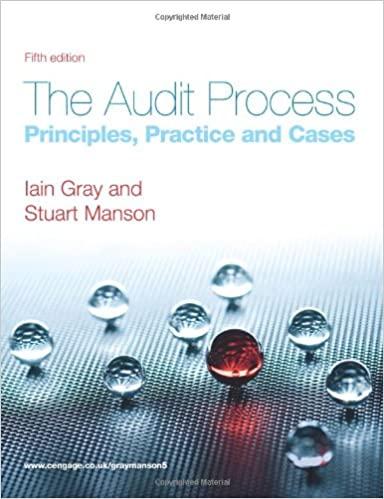Question
PLEASE ANSWER IN SHORT, MIN 4-7 MAX SENTENCES. IT IS FOR ACCOUNTING 200 LEVEL CLASS SO IT IS OKAY TO BE IN SIMPLE LANGUAGE. I
PLEASE ANSWER IN SHORT, MIN 4-7 MAX SENTENCES. IT IS FOR ACCOUNTING 200 LEVEL CLASS SO IT IS OKAY TO BE IN SIMPLE LANGUAGE. I WANT TO THANK YOU FOR SOLVING MY PROBLEM.
1) Explain the difference between Comprehensive Income, Other Comprehensive Income, and Accumulated Other Comprehensive Income. What does a debit balance in Accumulated Other Comprehensive Income mean, and how does it affect the financial statements? How does this compare to a credit balance in this account?
2) What is the difference between a trading security and an available-for-sale security? Why are unrealized holding gains/losses on trading securities recorded in the Income Statement; whereas, unrealized holding gains/losses on available-for-sale securities are recorded as Other Comprehensive Income?
3) Explain any four key differences between IFRS and GAAP as they pertain to the Statement of Cash Flows:
4) At each reporting date, a company should evaluate each of its investments (held-to-maturity, trading securities, and available-for-sale securities) to determine if impairment exists. Describe in detail the three steps involved in determining whether or not impairment exists, and if it does exist, how it would be recorded.
Step by Step Solution
There are 3 Steps involved in it
Step: 1

Get Instant Access to Expert-Tailored Solutions
See step-by-step solutions with expert insights and AI powered tools for academic success
Step: 2

Step: 3

Ace Your Homework with AI
Get the answers you need in no time with our AI-driven, step-by-step assistance
Get Started


